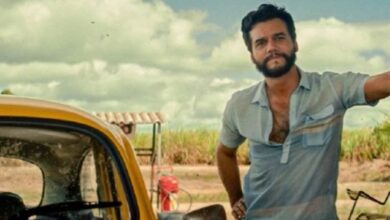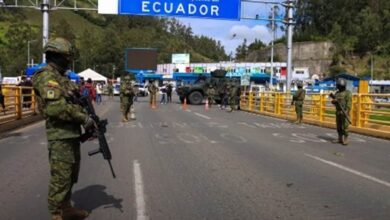“The defenders are the voices where there is no State”: UN Special Rapporteur
During his visit to Colombia, Michel Forst, UN Special Rapporteur, spoke about the situation of the human rights defenders

In Colombia, 435 social leaders have been killed since January 2016. Of these people, 326 of them lost their lives after the signing of the Agreement for the end of the conflict signed between the Colombian government and the FARC guerrillas, according to figures from the Defensoría del Pueblo (Ombudsman's Office). The threats, the theft of information and other harassment against people who works for the defense of the human rights in the country have also increased.
Leer en español: "Las personas defensoras son las voces en donde no hay Estado": Relator especial de la ONU
Within the framework of this situation, from July 28 to August 1, 2018, Colombia received the academic visit of Michel Forst, Special Rapporteur of the UN Human Rights Defenders. During his stay he met with organizations, social leaders, authorities and scholars in Medellín, Buenaventura and Bogotá. The end of his visit was given with a great conversation entitled "Defensores y Defensoras de Derechos Humanos en procesos de Construcción de Paz” (Defenders of Human Rights in Peacebuilding processes) at the Gabriel García Márquez Cultural Center on the afternoon of Tuesday, July 31.
The importance of the work for the defense of Human Rights (DD.HH.) and the obstacles it has in the world
On this occasion, the visit of Rapporteur Forst was academic and not official. What does this mean? For a Special Rapporteur of the United Nations to make an official visit to a country, and to be able to talk about a specific situation of that nation, he must be invited directly by the government. However, to date the Colombian government has not made this formal invitation. For this reason, the Rapporteur Michel Forst agreed to participate in the academic event organized by the Universidad Nacional of Colombia in coordination with 10 organizations and platforms of civil society, and it is in the framework of this discussion that he makes his academic visit.
Although it is not possible to speak about the information received in these days or the specific situation of human rights defenders in Colombia, during the discussion, the Rapporteur said that in the world, violence against social leaders "obeys more to planned and coordinated actions." "Even in some cases there have been partnerships between the governments themselves and large companies interested in developing important extractive projects that involve mining-energy resources," he added.
According to the Rapporteur, there are three elements that favor violence against defenders. First, the use of public discourse to discredit the work of the human rights defenders. Second, the use of legislation to criminalize or limit their work. Third, the use of the judicial system to act against them. "The public speech against human rights defenders is being seen in several places in the world. I often hear that the judicial system is fast to condemn defenders, but not to protect them," he said.
You can also read: Colombia: The towns and municipalities also rally against the assassinations of social leaders
Forst also recalled that "defenders are the voices where there is no State in the most distant territories" and made a special mention of the role of women defenders as a fundamental pillar to give sustainability to peace.
The situation in Colombia
In the five days of his visit, Rapporteur Forst met with social leaders from the southwest and north-west of the country, as well as with organizations with presence in other regions and with victims. Through their testimonies and other reports constructed in these months, these people informed the Rapporteur about the increase in selective violence against leaders in rural areas, especially those who are part of Community Action Boards, land claimants, people who lead processes of substitution of crops, members of farmer organizations, trade unions and victims.
Both in the visits and in the discussion, the organizations emphasized the existence of patterns common to all the murders and the impact that these murders have on the social fabric of the communities. In addition, they recalled that in the reports published in the last year it has been indicated that human rights violations against defenders and leaders occur in highly militarized territories.
Finally, the organizations and leaders in the territories transmitted to Relator Forst during his visit the same concerns that have not yet been answered by the Prosecutor's Office, the government or the local authorities: Who are the intellectual authors of these events? To whom do the criminal structures respond? Why the high level of impunity? What measures are taken to protect defenders? Who makes the weapons and ammunition with which they kill the social leaders in the country? What else must happen for the State to recognize the systematic nature of these crimes?
LatinAmerican Post | Carolina Garzón Díaz
Translated from ""Las personas defensoras son las voces en donde no hay Estado": Relator de la ONU"





